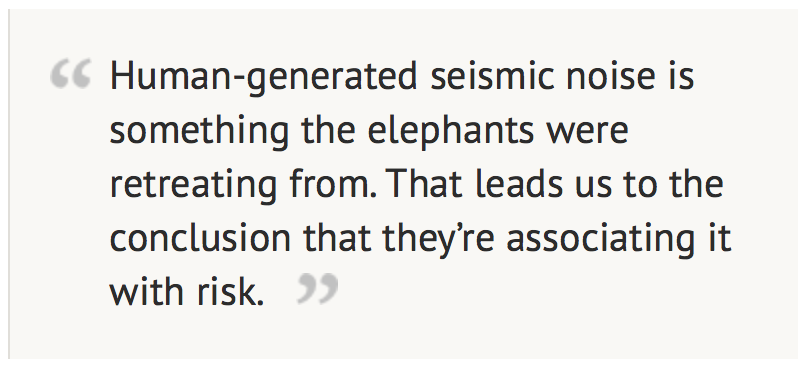Release time: 2021-07-01 16:08
New study finds elephants show risk-avoidance behaviour in response to human-generated seismic cues
Researchers at the University of Oxford and Save the Elephants have found evidence that African elephants (Loxodonta africana) listen and react to ground vibrations created by human activity.
Elephants’ heavy footsteps and their rumbling low-frequency calls are so powerful that they can create seismic waves - vibrations that travel through the ground and along its surface. As a result, elephants have evolved sensitivity to these ground-traversing sound waves, in part because it because it helps them communicate with one an-other across thousands of metres. The animals have an inner ear, as well as pressure-sensitive nerve endings in their feet called Pacinian corpuscles, and scientists believe that these help them detect seismic vibrations.
Now, researchers at the University of Oxford and Save the Elephants have found evidence that African elephants (Loxodonta africana) also listen and react to ground vibrations created by human activity.
The study, published today in the Proceedings of the Royal Society B, shows that when elephants perceive such human-generated seismic waves, they often retreat away from them, apparently as a risk-avoidance strategy. Previous studies have found they avoid the acoustic sounds of bees, tiger growls, human voices, and other elephants’ alarm calls. But whether they could also identify and discriminate between different ground-based sounds was unclear.

Conservationists are concerned that man-made noises may interfere with signals that elephants receive from the natural world and impact their survival. A profusion of low frequency noise is a particular concern in Samburu, where this study was carried out, since it is close to an artillery firing range. Elephants may also be sensitive to seismic blasting for oil exploration, which is currently taking place in Kavango in Namibia.
To study how they detect and respond to seismic waves generated from different sources, Dr Beth Mortimer, a zoologist at the University of Oxford, her colleagues and a team from Save the Elephants played seismic recordings of elephants and human-generated white noise, as well as a combination of both, to wild elephants in Samburu National Reserve and Buffalo Springs National Reserve in northern Kenya.
